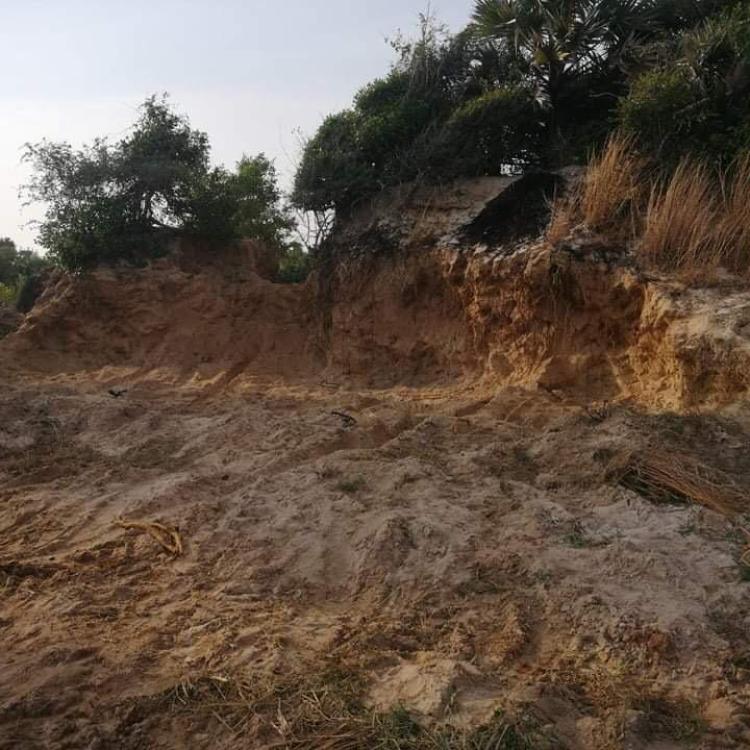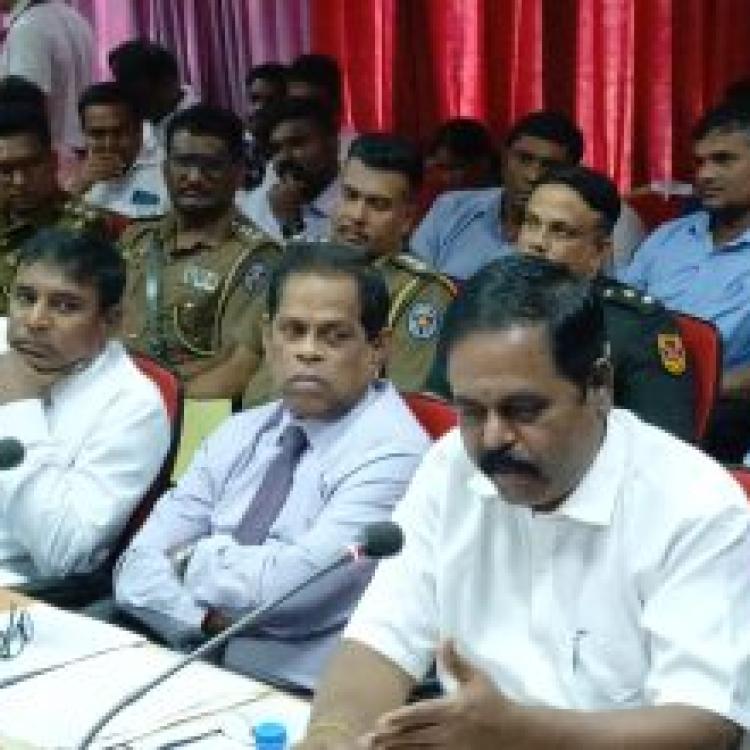.jpeg)
The Sri Lankan police have sought and obtained a restraining order from the Mannar Magistrate’s Court against ten Eelam Tamils, including lawyers and priests, who were organizing protests against illegal mineral sand mining in the district.
The order, issued on Monday (17), imposes strict conditions to prevent what it called public disruption, property damage, and interference with the activities of government officials and private companies involved in mining inspections. This is despite the fact that private companies and the government has been complacent in issuing permits for controversial mining projects in the past.
.jpeg)
Among those named in the restraining order are Attorney Selvaraj Dinesan and Rev. S. Marcus, both prominent figures in the ongoing resistance against sand mining in Mannar. The court order, effective for 14 days, prohibits protests that could disrupt the operations of the Central Environmental Authority and Orion Minerals, a private company linked to the mining activities.
Mineral sand mining has been a deeply contentious issue in Mannar, with Eelam Tamils consistently opposing the exploitation of their land and resources. For years, the district’s rich mineral deposits have attracted both government and private entities, but local residents have fiercely resisted these efforts, citing severe environmental degradation and the threat to their livelihoods.
Fishing and farming communities, who rely on the land and coastal ecosystems, argue that illegal sand mining could irreversibly damage the environment and displace thousands of families. Despite repeated assurances from authorities, the people of Mannar remain skeptical, viewing the latest push for mining as another attempt to prioritize corporate interests over their rights and well-being.
In recent months, government officials have twice attempted to inspect potential mining sites in Mannar, only to be met with strong public opposition. On both occasions, local residents successfully forced the officials and private companies to retreat. However, with authorities now preparing for another inspection in the Olaithoduvai and Thotaveli areas, tensions have escalated once again.
.jpeg)
The police, citing concerns over public disruption, sought the restraining order to prevent protests during the upcoming inspections. However, activists argue that the order is a heavy-handed attempt to silence dissent and suppress the legitimate concerns of Eelam Tamils.
The issue has taken on a political dimension, with many in Mannar feeling betrayed by the current administration. During the presidential election campaign, Sri Lankan president Anura Kumara Dissanayake publicly pledged that he would not allow mineral sand mining in Mannar without the consent of the local population. Yet, within a year of his presidency, government departments are actively pursuing mining permissions, raising questions about the sincerity of these promises.
For the residents of Mannar, this is not just an environmental issue but a fight for their survival and the preservation of their ancestral lands.The restraining order is seen as an attack on democratic rights and freedom of expression. By targeting key figures in the anti-mining movement, such as Attorney Selvaraj Dinesan and Rev. Marcus, the authorities appear to be attempting to dismantle organized resistance.
.jpeg)


